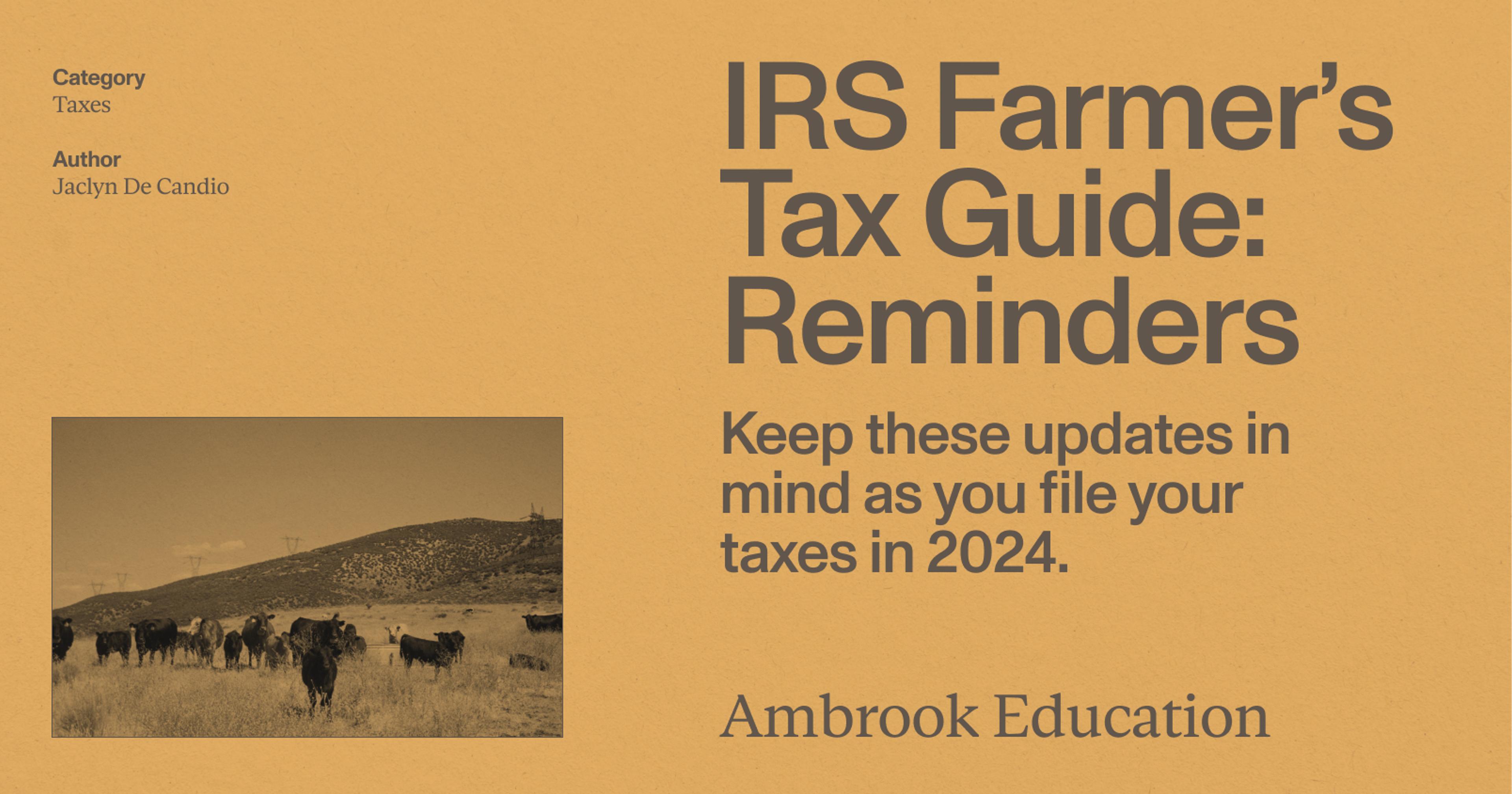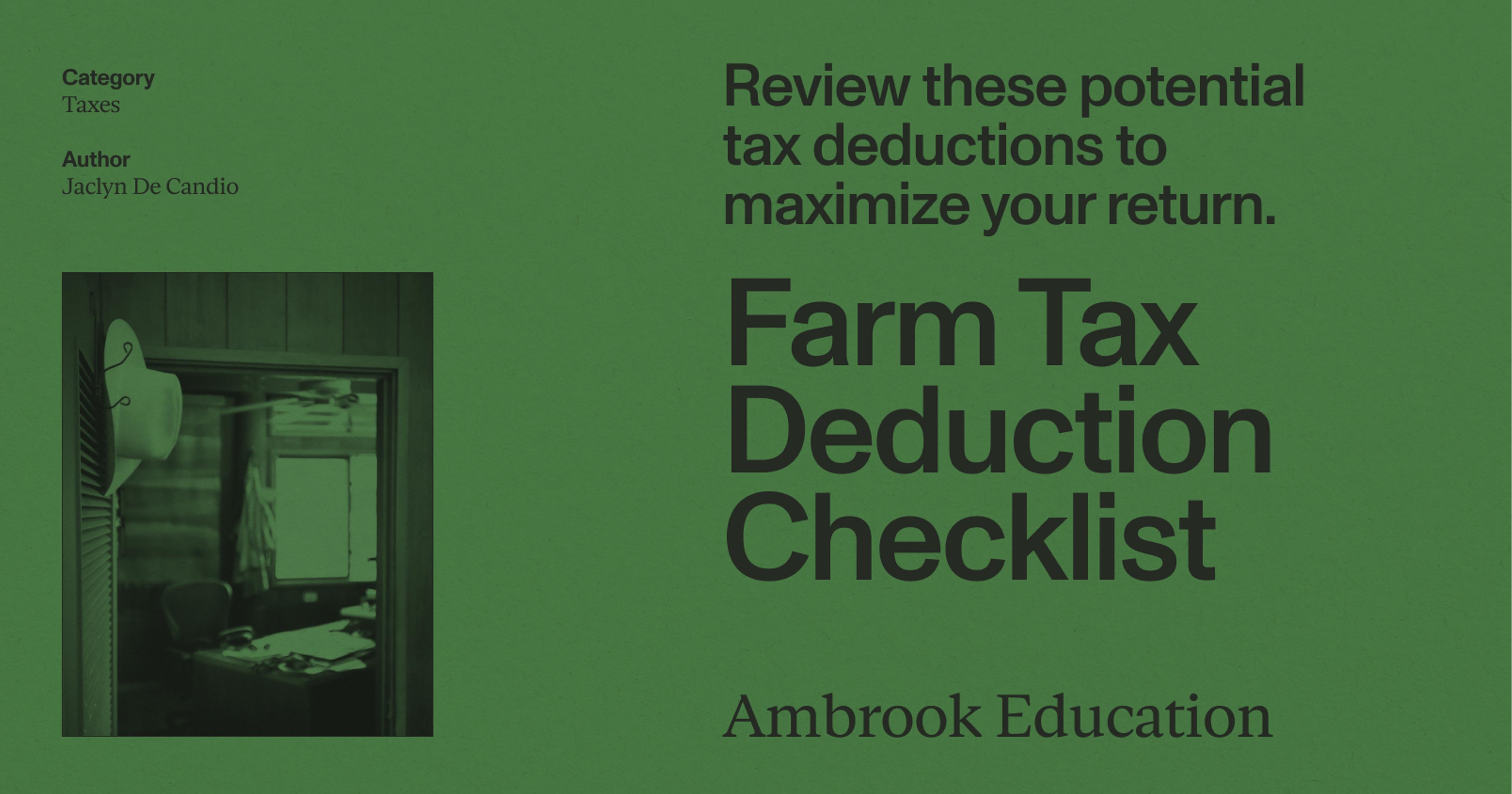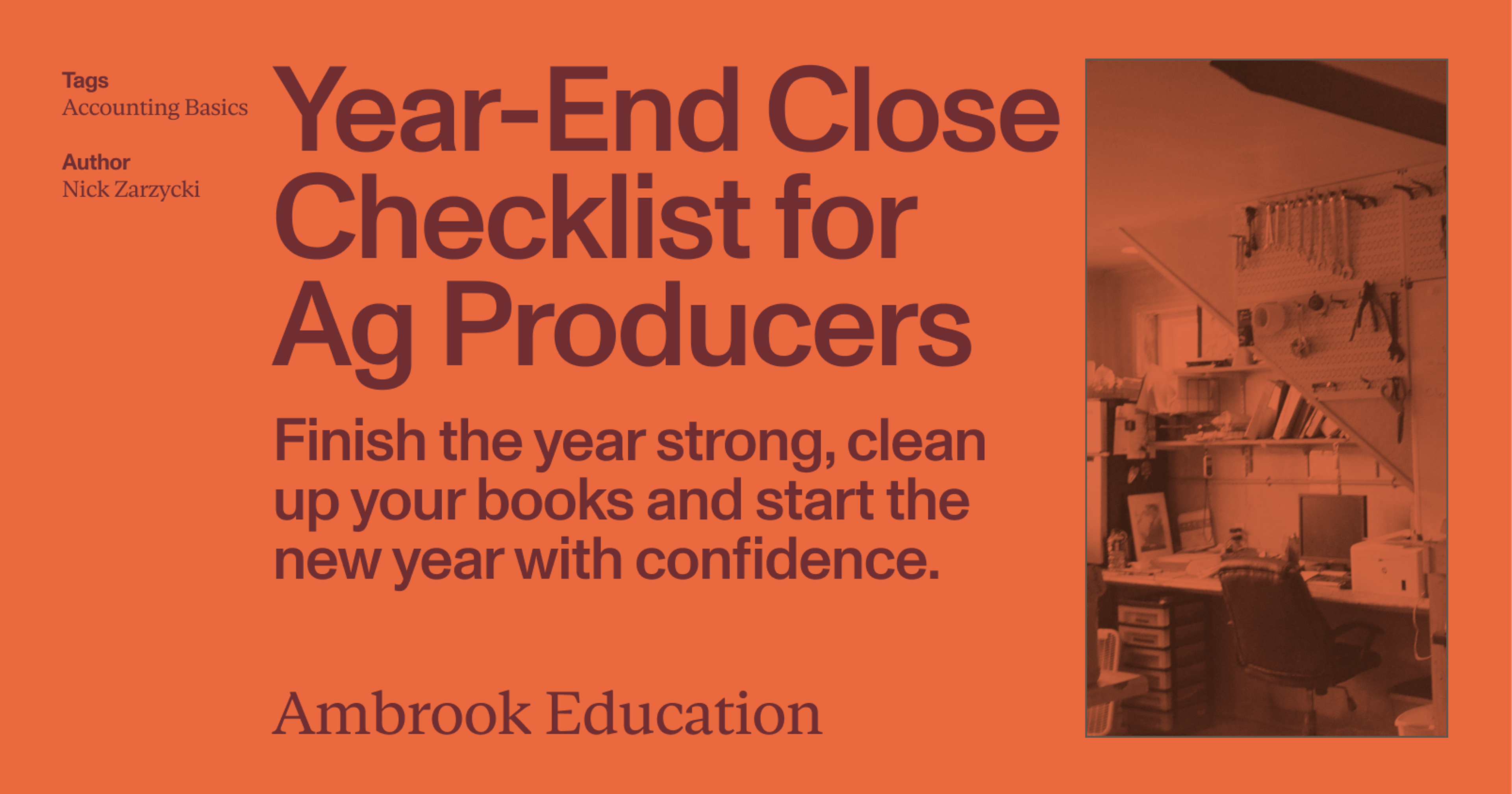It’s never too early to organize your books
Keeping good records may not seem like such a big deal–that is until you need them during tax time or when applying for a grant. But efficient and accurate recordkeeping is as important to the success of your farm as any other task.
What does a good record keeping system look like? It will be one that is:
Accurate
Easy to maintain
Readily searchable
Creating and maintaining an efficient farm accounting system requires accurate collection, good management, and proper application for data collection, organization, and input.
Step 1: Collect all financial records
Records serve many purposes both on and off the farm, and can play a role in daily, yearly and even long-term management. Whenever organizing and analyzing any type of farm record, it’s helpful to step back and consider what you need the data for. Some uses include:
1. Maximizing your bottom line
Accurate records help you claim all eligible deductions, potentially saving thousands in taxes.
2. Making informed decisions
Detailed financial information empowers you to track profitability, identify cost-saving opportunities, and make strategic business choices with tools like profit and loss statements and balance sheets.
3. Managing risk effectively
Comprehensive records are essential for insurance claims, disaster recovery assistance, and mitigating financial setbacks.
4. Planning for the future
Long-term financial goals, such as retirement, estate planning, and succession, rely on accurate historical data.
On the financial side, your records will include income, expenses, bank and cash flow statements just to name a few. Many if not all of these will work their way into your annual tax filing. How you incorporate these into your taxes depends on your accounting method. Most farm accounting falls into one of three types.
1. Cash Basis
This is the simplest accounting method and very popular in agriculture. It records income when cash is received and expenses when cash is paid. This would mean recording income when crops or livestock are sold and recording expenses when supplies or equipment are purchased. This method is easy to use but can provide a misleading picture of a farm’s financial health, especially if there is a lag between when crops are planted and when they are sold.
2. Accrual Basis
This method records income when it is earned, regardless of when cash is received, and expenses when they are incurred, regardless of when cash is paid. This would mean recording income when crops are harvested or livestock are ready for market, and recording expenses when supplies are used or equipment is depreciated. This method provides a more accurate picture of a farm’s financial health, but is more complex to use than cash basis accounting.
3. Tax Basis
This method is used to calculate a farm’s taxable income. It is based on the cash basis method with some modifications, such as allowing farmers to deduct certain expenses in advance of when they are paid. Tax basis accounting is important for farms because it can affect their tax liability.
In order to leverage managerial accounting and analyze profitability, we recommend using the accrual basis of accounting.
Step 2: Implement good record management
You want to always clearly document income, summarize business transactions (gross income, expenses, deductions, and credits), and store supporting documents such as invoices and receipts. Records should be organized by year and type of income or expense.
Go through your invoices, sales receipts, and accounts with which you regularly do business. Be sure you and anyone who assists with your books has access to these accounts and cross check them with your own work.
Farm records include a variety of documents that are both digital and physical. While spreadsheets like Microsoft Excel and Google Sheets offer a basic way to track income and expenses, they lack specialized agricultural features and integrated tax preparation tools. For better accuracy and efficiency, consider using dedicated farm accounting software like Ambrook.
Step 3: Work smarter with helpful resources
Knowing and utilizing accessible resources can help you stay organized, be informed and detailed, so that you can simplify tax preparation, make informed business decisions, and potentially increase your bottom line. Some of our favorite resources include:
Farmer’s Tax Guide (IRS Publication 225)
The Farmer’s Tax Guide is updated every year and includes information on a variety of topics related to taxes, including accounting methods, depreciation, depletion and amortization, capital gains and losses, disposal of property used in farming, and employment and self-employment taxes.
Rural Tax Education
Utah State University extension offers a great source of up-to-date farm tax information to help keep your books in order.
State Cooperative Extension Services
Several other land grant universities offer farm workshops and educational materials on bookkeeping and computer skills via their extension outreach. Even if you don’t have one in your particular state, you may be able to get some support virtually.
Ambrook Education
Ambrook has built a library of resources on how to implement financial management best practices and increase owner-operator literacy for financial health.
Step 4: Avoid these common record keeping mistakes
Farm life keeps you busy, so it’s easy for bookkeeping to fall by the wayside. When you do find time to tackle your finances, watch out for these common errors:
1. Miscategorized Expenses
Ensure expenses are accurately classified for proper tax deductions and financial analysis.
2. Unreconciled Accounts
Regularly compare your bank statements and receipts to your records to prevent discrepancies.
3. Missed Deadlines
Set reminders for tax filing and report deadlines to avoid penalties.
4. Missing Receipts
Maintain organized records of all purchases for potential deductions and audits.
5. Blurred Personal and Business Finances
Keep separate accounts to avoid confusion and potential tax issues. Ambrook can help you tag expenses between your business and personal accounts.
6. Calculation Errors
Double-check all numbers, or consider using accounting software to minimize mistakes.
Other helpful tips for farm record keeping
Even when these major errors are mitigated, communication can be a pitfall on farms of all sizes, especially when multiple eyes and hands are involved with farm accounting. Keep these tips in mind to get everyone on the same page.
1. Choose the right system
Use farm-specific accounting software that enables everyone on your team to be involved in the accounting process.
2. Develop a routine
Establish a protocol and write it down. For the sake of efficiency, find a system that avoids duplication of efforts. Go over protocol regularly with members of the team to ensure it is being followed.
3. Ask for receipts
Get into the habit of asking for receipts so it becomes second nature. If you don’t get an electronic or hard copy receipt, take a picture with your phone and upload them into Ambrook.
4. Organize by year and category
It is easy to overlook expenses without a record of some sort. This impacts not only the true picture of profitability, but your tax burden as well. You could easily miss out on your full deductions and wind up paying more taxes than is necessary or reducing a tax refund.
Minimize stress with the IRS
Accurate record keeping, including detailed categorization of expenses and supporting documentation, is essential for completing Schedule F. Categorizing expenses and maintaining supporting documentation ensures you claim all eligible deductions, reducing your tax burden.
When you follow the best practices and document income, expenses, and other critical data, you are actively building a solid financial foundation for your farm. Consistent record keeping in a tool like Ambrook provides insights into your farm’s performance, guiding you towards increased profitability and streamlined tax preparation.
This resource is provided for general informational purposes only. It does not constitute professional tax, legal, or accounting advice. The information may not apply to your specific situation. Please consult with a qualified tax professional regarding your individual circumstances before making any tax-related decisions.





